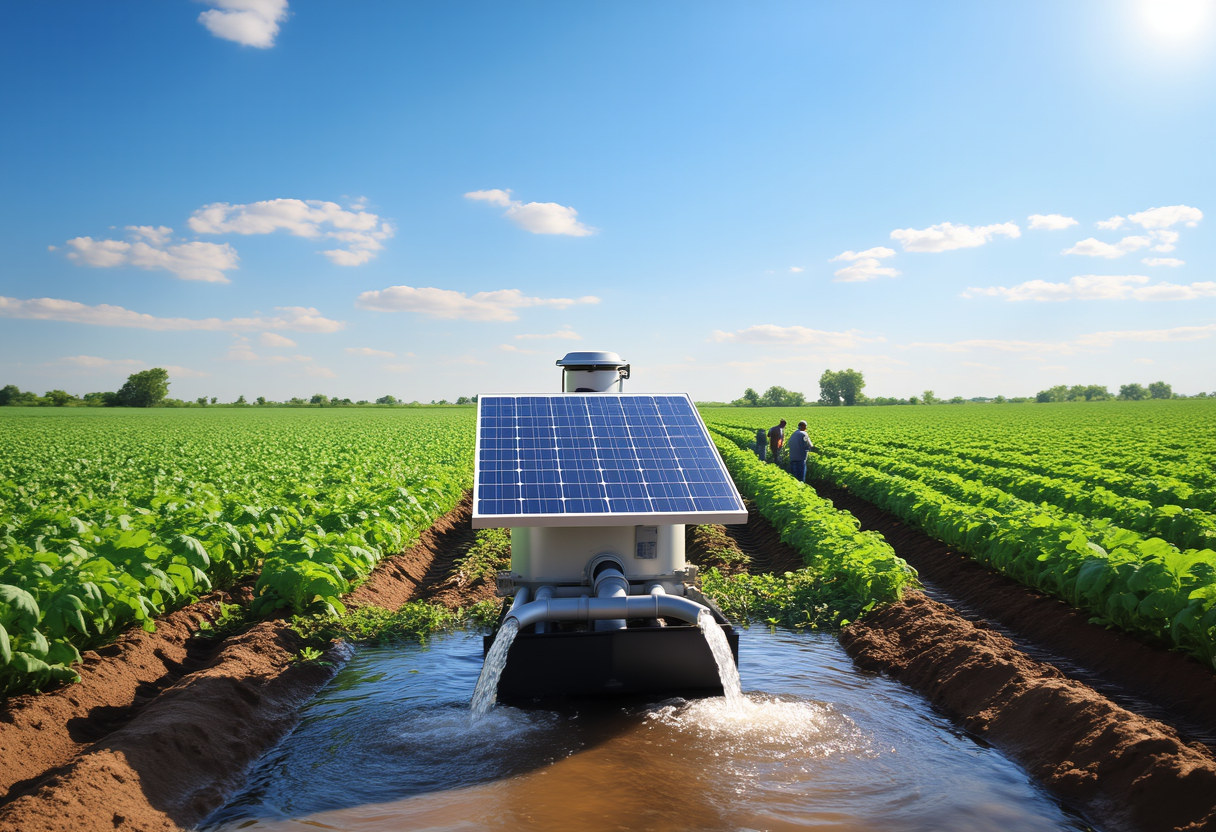The Future of Agriculture: How Solar-Powered Water Pumps Are Transforming Farming
Solar-powered water pumps are revolutionizing the agricultural landscape by offering sustainable solutions for irrigation. These innovative devices harness sunlight to provide a reliable water source, reducing dependency on fossil fuels. This article explores their benefits, including cost efficiency and environmental impact, and discusses how they are changing farming practices worldwide. Discover how solar-powered water pumps can enhance productivity and sustainability in agriculture, paving the way for a greener future.
The Role of Solar-Powered Water Pumps in Modern Agriculture
Solar-powered water pumps have emerged as a transformative force in modern agriculture, offering sustainable solutions to water scarcity. With the global population steadily increasing, the demand for food production is higher than ever, leading farmers to innovate ways to enhance irrigation methods. By utilizing solar energy, these pumps provide a dependable water supply while significantly reducing operational costs. Implementing solar-powered water pumps not only improves efficiency but also contributes to environmental conservation by minimizing greenhouse gas emissions. Moreover, as traditional water sources diminish, farmers are increasingly turning to these pumps to ensure stable crop output throughout the growing season.
Cost-Effectiveness and Economic Benefits
Economically speaking, solar-powered water pumps present a strong case for adoption among farmers. Unlike diesel or electric pumps, these systems have minimal operating costs since sunlight is free. Once installed, the maintenance costs associated with solar-powered water pumps are also generally lower, leading to significant long-term savings for agricultural operations. The initial investment may seem daunting, but with various financial incentives and subsidies available, many farmers find this technology increasingly accessible. Furthermore, the increased efficiency of irrigation directly correlates with higher crop yields, translating to better profits for farmers who embrace solar-powered water pumps.
Environmental Impact of Solar-Powered Water Pumps
The environmental impact of adopting solar-powered water pumps cannot be overstated. By relying on renewable energy sources, these pumps significantly reduce the carbon footprint of agricultural operations. The transition from fossil-fuel-powered irrigation systems to solar alternatives aligns with global efforts to combat climate change. Additionally, solar pumps help preserve precious water resources by enabling precise irrigation techniques, thereby preventing overconsumption and encouraging sustainable farming practices. As farmers become more conscious of their environmental impact, solar-powered water pumps represent a smart, eco-friendly choice that contributes positively to the planet's health.
Overcoming Challenges in Implementation
While the benefits of solar-powered water pumps are clear, implementing this technology is not without challenges. Farmers must navigate issues such as upfront capital costs, understanding the technical specifications, and managing system maintenance. Education and training become essential in ensuring farmers can seamlessly integrate solar-powered water pumps into their practices. Additionally, some regions may lack the infrastructure to support solar technology, requiring local governments and organizations to provide support and resources. By addressing these challenges, the agricultural sector can pave the way for widespread adoption of sustainable irrigation solutions through solar-powered water pumps.
Enhancing Food Security with Solar Technology
In the context of global food security, solar-powered water pumps play a crucial role. As more farmers incorporate these systems, they contribute to increased agricultural resilience in the face of climate change. Improved access to water means enhanced crop consistency and quality, which are vital for ensuring adequate food supplies. In regions prone to drought, solar-powered water pumps can alleviate some of the pressures on production by providing farmers with the tools to irrigate effectively. As agricultural leaders champion these technologies, a more secure food future can confidently emerge, driven by innovative practices that prioritize sustainability.
Looking Towards a Sustainable Future with Solar-Powered Water Pumps
As we look to the future, the role of solar-powered water pumps in agriculture will only continue to grow. Their ability to facilitate sustainable farming practices while addressing critical water resource challenges highlights their importance. Ongoing advancements in solar technology will likely enhance the efficiency and affordability of these systems, making them even more attractive to farmers. As communities adopt solar-powered water pumps, they set the stage for a more sustainable approach to agriculture that benefits both the economy and the environment.
